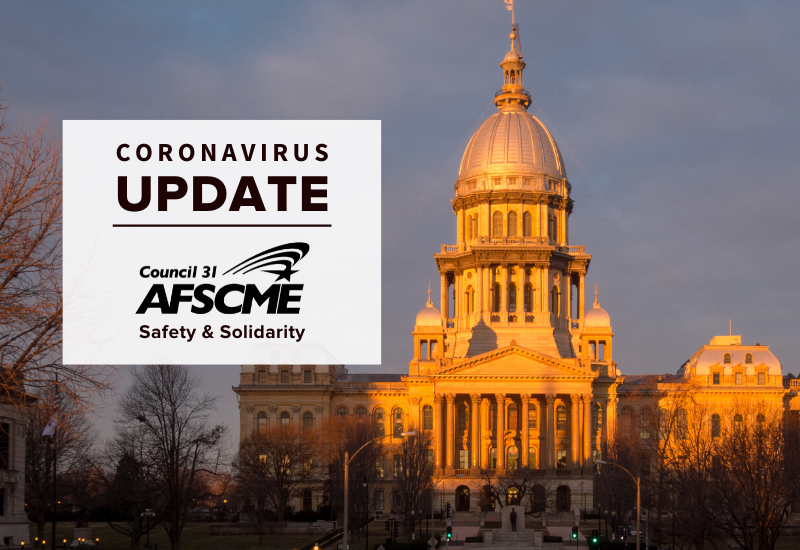Virus crisis hits Illinois budget
 As every Illinois resident, school and business struggles with the far-reaching fallout of the COVID-19 pandemic, the state budget is no exception.
As every Illinois resident, school and business struggles with the far-reaching fallout of the COVID-19 pandemic, the state budget is no exception.
The deep economic downturn caused by the coronavirus crisis has slowed tax collections on the revenue side while accelerating costs on the spending side. The result is a budget hole so deep that multiple fiscal years will feel the pain, starting with an immediate shortfall in the current 2020 spending plan and complicating the passage of a blueprint for the 2021 budget year that starts this June 1.
"It will be bad," AFSCME Council 31 Legislative Director Joanna Webb-Gauvin says. A glimpse of just how bad was laid out by the Governor's Office of Management and Budget on April 15. Its revised forecast projects a $2.7 billion loss to general revenue funds in this year's budget and a further $4.6 billion loss next year.
LAYOFF THREAT
Given such a wide gap, layoffs, program cuts and closures are among the inevitable threats. And it's not just state employees who could be affected. Because state government provides important funding for local governments, school districts, universities and not-for-profit agencies, cuts at the state level cause harm everywhere.
Likewise, the powerful corporate interests who will use any excuse to push pension cuts and the front groups that backed Bruce Rauner’s attacks on our union are surely sharpening their axes now.
"This is going to be a very, very difficult financial challenge for the state," Governor Pritzker said according to Politico. "We have big holes in our budgets as a result of what's happened with Covid-19. It's nobody’s fault. It just is what it is and we’re going to have to deal with it."
Last week, the Chicago Sun-Times reported on an analysis that said "the pandemic could trigger an economic recession" leading "to $8 billion in lost tax revenue spread out over multiple years for the state's budget."
FEDERAL HELP NEEDED
Although state government will receive $2.7 billion from stimulus legislation already passed in Washington, those funds can only be used to pay new costs incurred in fighting the novel coronavirus, such as paying for tests or personal protective equipment, expanding hospital capacity and more.
AFSCME is urging Congress and the President to quickly approve hundreds of billions in additional funds for states and local governments nationwide.
"Congress should give another $300 billion in direct, unrestricted aid to state and local governments," AFSCME President Lee Saunders wrote to US Senate and House leaders.
Here in Illinois, the pandemic underscores the need to pass the fair tax constitutional amendment this fall. If the fair tax passes, anyone making less than a quarter-million dollars a year would get a tax cut (or pay no more than they do now) while the wealthiest top 3% would pay a little more, raising more than $3 billion a year.
Read more:
“Illinois preparing budget update on coronavirus impact”, Bond Buyer, 4/14/20
“When will the impact of the coronavirus crisis hit state budgets like Illinois’?”, Pew, 4/4/20
“The ‘devastating impacts’ of COVID-19 on Illinois finances”, WTTW, 3/26/20